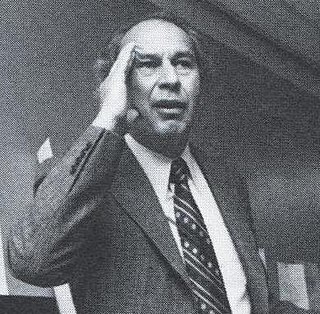A Quote by Margaret Thatcher
What great cause would have been fought and won under the banner 'I stand for consensus'?
Related Quotes
To me consensus seems to be - the process of abandoning all beliefs, principles, values and policies in search of something in which no-one believes, but to which no-one objects - the process of avoiding the very issues that have to be solved, merely because you cannot get agreement on the way ahead. What great cause would have been fought and won under the banner "I stand for consensus"?
Finally, I would remind you to notice where the claim of consensus is invoked. Consensus is invoked only in situations where the science is not solid enough. Nobody says the consensus of scientists agrees that E=mc2. Nobody says the consensus is that the sun is 93 million miles away. It would never occur to anyone to speak that way.
Historically, the claim of consensus has been the first refuge of scoundrels; it is a way to avoid debate by claiming that the matter is already settled. Whenever you hear the consensus of scientists agrees on something or other, reach for your wallet, because you're being had. The greatest scientists in history are great precisely because they broke with the consensus.
Science is science. Science is what is. After discovery, tests, trial, if a consensus of scientists today said that the sun orbits around the earth, would we say that they're right simply because there is a consensus? No. Because we know the earth orbits around the sun just as if there were a consensus that the earth is flat would we agree with them? No. So there can't be a consensus on something that hasn't been proven. This is a political movement. This whole global warming thing is a political movement.
In the large sense the primary cause of the Great Depression was the war of 1914-1918. Without the war there would have been no depression of such dimensions. There might have been a normal cyclical recession; but, with the usual timing, even that readjustment probably would not have taken place at that particular period, nor would it have been a "Great Depression.
The work of science has nothing whatever to do with consensus. Consensus is the business of politics. Science, on the contrary, requires only one investigator who happens to be right, which means that he or she has results that are verifiable by reference to the real world. In science consensus is irrelevant. What is relevant is reproducible results. The greatest scientists in history are great precisely because they broke with the consensus.
Religion is so focused on family. These days, for many people, being gay is also focused on family. The Mormon Church is especially focused on family, and I'd have hoped, therefore, that the Mormon Church would especially have celebrated how all of these people who might have been lonely and suicidal and childless are now able to lead this other life. I would have thought it would be a cause for immense celebration. Instead it has been, obviously, a cause of great concern to the Church and its leadership.
I have this idea of a Taiwan Consensus, which means people in Taiwan have to get together and form a consensus of their own and that they turn around to talk to the Chinese to form a cross-strait consensus so we can build a relationship on that consensus. And in my view, that is the right order to do things.
There are no good wars or bad wars. The only thing bad about a war is
to lose it. All wars have been fought for a so-called good Cause on both
sides. But only the victor's Cause becomes history's Noble Cause. It's not a
matter of who is right or who is wrong, it's a matter of who has the best
generals and the better army!
I talk to all the creative directors today, and they take me aside, and they say, 'You know, it must have been great back in those days when you could do anything you wanted.' I say, 'Huh? Excuse me?' I mean, we fought. In the '60s and '70s, you fought wars with clients, and you have to continue fighting wars to do great work.






































